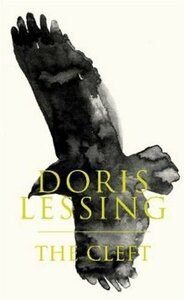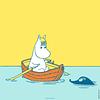Take a photo of a barcode or cover
This was certainly not my favorite book. I started reading this one because of my goal to read through all of the books that have won the pulitzer prize or the nobel prize for literature. It was in a way very similar to the Navajo creation story, but done in a way that it seemed that men had always been born to be rash and irresponsible and women nagging and unreasonable. I would give commendation to the author for making a smooth flow and a somewhat novel reading experience, but the subject material was repetitive and left me often wanting to drop the book and never pick it up again.
I rarely, if ever, DNF a book (no matter how much I hate reading it!) so imagine my horrified surprise when my only DNF of 2023 was a multiple award-nominated book by the iconic author of “Memoirs of a Survivor”, which I think changed the fabric of my brain forever. After the sheer impact that “Memoirs” had on me I figured Lessing could do no wrong but I regret to inform you all that she did major wrong with “The Cleft.”
I could not make it past page 146. This book is not to my taste *at all* and I really question what your taste would have to be to enjoy it. It’s basically supposed to be a satirical rumination on the nature of heterosexual relationships and the gritty specifics of cisgender identity, so you can probably see why my lesbian self would be bored at the outset. But the thing is that the satire barely registers, let alone comes across as clever or entertaining. It reads like it’s The Heterosexual Manifesto (TERF Edition). It reads like a drunken Reddit post speed-typed by a guy with an untrimmed beard and an arsenal of “misunderstood” hot takes about “females”. HOW can this be a Doris Lessing book? I just don’t understand. I feel deeply betrayed, like how are you gonna be one of the most legendary canonical Western modernists (lauded as an icon of literary feminism!!) and produce this absolute garbage??? HOW??
I just… I wish I had never set eyes on this evil tome and I wish even more that I hadn’t bought it. This could have been a cathartic library return but now I’m gonna have to get on the bus to hand it off to consignment. I suppose that’s what I get for being uncritically starry-eyed about “Memoirs.” Seriously, do not read this book. Life is short and fragile already without having to suffer through a couple hundred pages of penis synonyms and insufferable narration by a fictional woman-hating ancient Roman scholar. Please, please just watch the Barbie movie instead.
I could not make it past page 146. This book is not to my taste *at all* and I really question what your taste would have to be to enjoy it. It’s basically supposed to be a satirical rumination on the nature of heterosexual relationships and the gritty specifics of cisgender identity, so you can probably see why my lesbian self would be bored at the outset. But the thing is that the satire barely registers, let alone comes across as clever or entertaining. It reads like it’s The Heterosexual Manifesto (TERF Edition). It reads like a drunken Reddit post speed-typed by a guy with an untrimmed beard and an arsenal of “misunderstood” hot takes about “females”. HOW can this be a Doris Lessing book? I just don’t understand. I feel deeply betrayed, like how are you gonna be one of the most legendary canonical Western modernists (lauded as an icon of literary feminism!!) and produce this absolute garbage??? HOW??
I just… I wish I had never set eyes on this evil tome and I wish even more that I hadn’t bought it. This could have been a cathartic library return but now I’m gonna have to get on the bus to hand it off to consignment. I suppose that’s what I get for being uncritically starry-eyed about “Memoirs.” Seriously, do not read this book. Life is short and fragile already without having to suffer through a couple hundred pages of penis synonyms and insufferable narration by a fictional woman-hating ancient Roman scholar. Please, please just watch the Barbie movie instead.
Reminded me of my gender women studies classes in college. A really interesting look at how language and memory affects how we see each other as "male" and "female."
adventurous
challenging
mysterious
medium-paced
Plot or Character Driven:
Plot
Strong character development:
No
Loveable characters:
No
Diverse cast of characters:
No
Flaws of characters a main focus:
No
An interesting and dark retelling of evolution that played itself out rather quickly. And by quickly, I mean within 30 pages.
A stunningly good book, but difficult to categorize. It could be called a parable of the origins and evolution of gender identity.
In the beginning, there were women who spontaneously self-impregnated and only gave birth to women. Their idyllic (in both senses of the word) existence consisted mostly of obtaining food and enjoying the sun and the waves. Every day was like the next, and every woman as well. Because nothing ever changed on the large scale there was no strife, no strong emotion. Everything was the way it was, the way it had always been.
And then a male child was born.
In the beginning, there were women who spontaneously self-impregnated and only gave birth to women. Their idyllic (in both senses of the word) existence consisted mostly of obtaining food and enjoying the sun and the waves. Every day was like the next, and every woman as well. Because nothing ever changed on the large scale there was no strife, no strong emotion. Everything was the way it was, the way it had always been.
And then a male child was born.
Strong character development:
No
Loveable characters:
No
Diverse cast of characters:
No
I feel proud that I didn't give up and finished it because I was struggling with it since page 2!Not my type of book and I expected it to be completely different.
I didn't enjoy it and I had issues with how by trying to explain the world he generated things like "men are careless" or "women complain" .
Things that ,yes, we say everyday but they are not true!
and also,are we to assume that there was no relation at all between same sexes?why the men needed the women and vice versa? are we suppesed to believe that these first people never questioned sexuality?
All in all,I hated it...
I didn't enjoy it and I had issues with how by trying to explain the world he generated things like "men are careless" or "women complain" .
Things that ,yes, we say everyday but they are not true!
and also,are we to assume that there was no relation at all between same sexes?why the men needed the women and vice versa? are we suppesed to believe that these first people never questioned sexuality?
All in all,I hated it...




